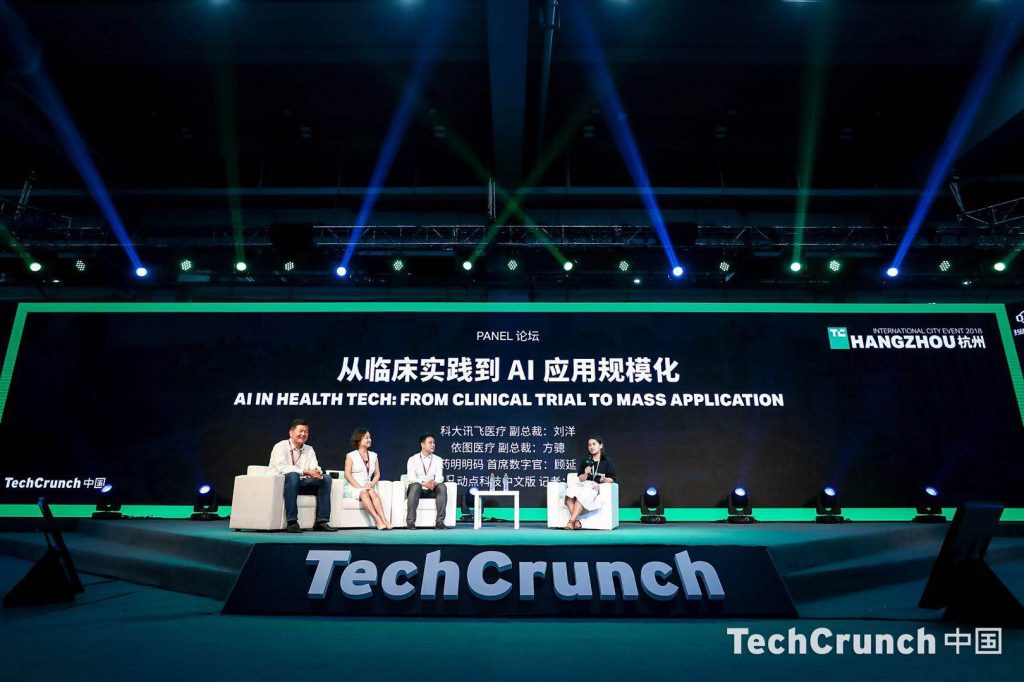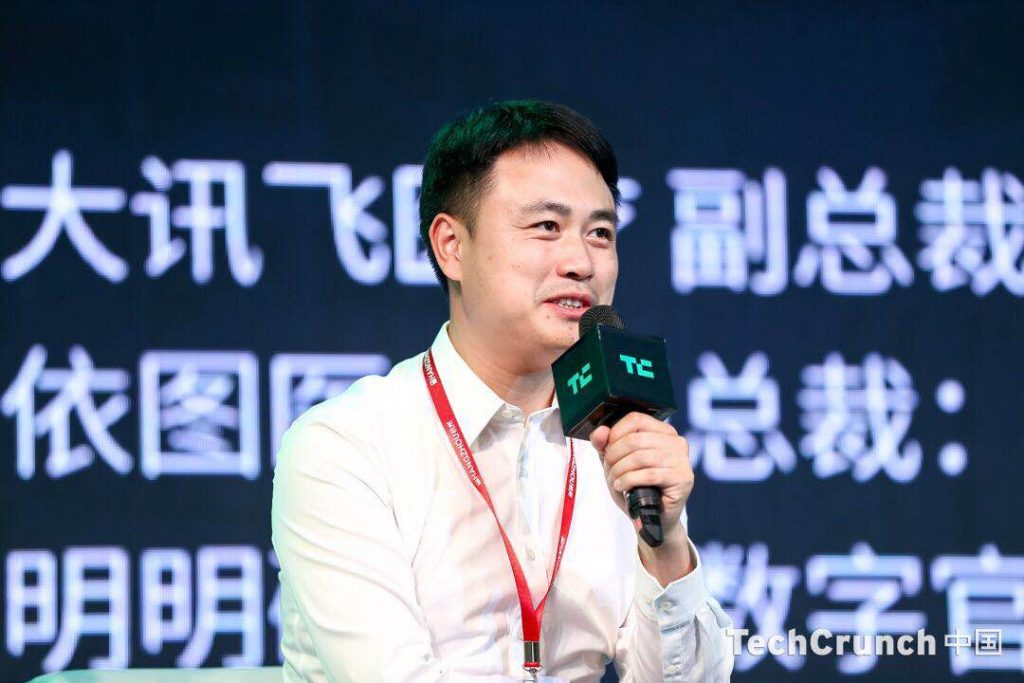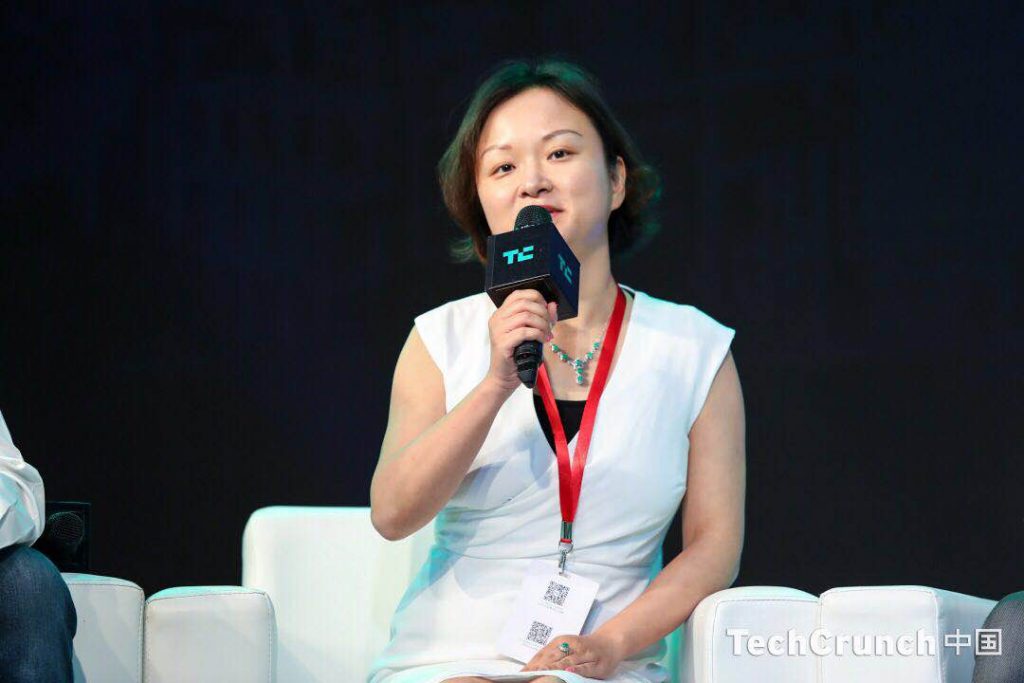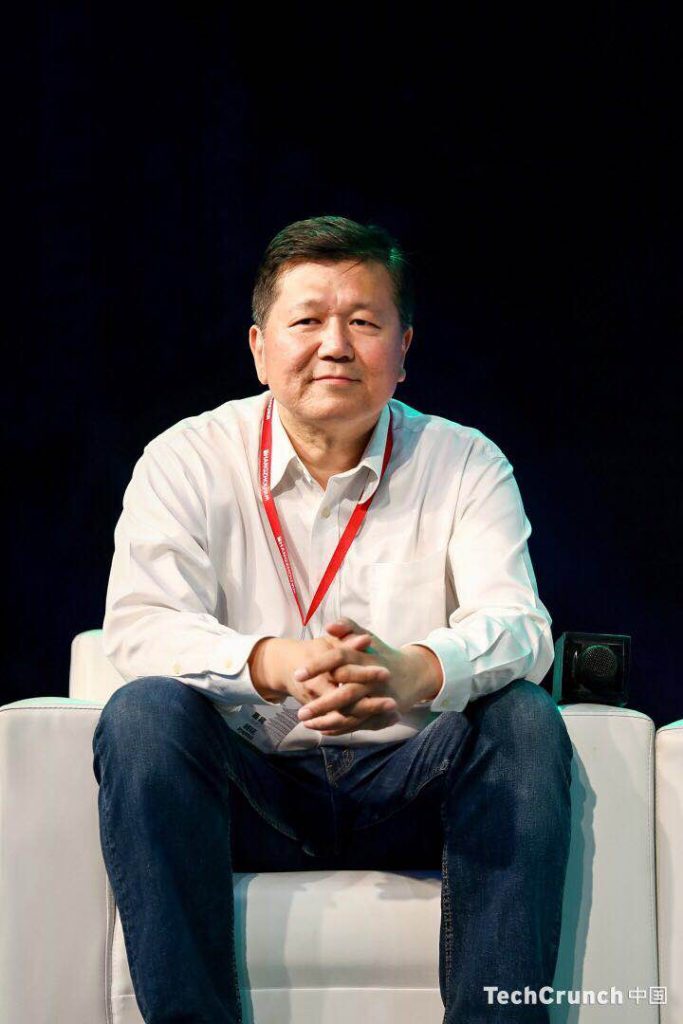
According to relevant data, the size of the AI medical market in 2018 is expected to reach 20 billion yuan. This figure seems to be reasonable and unexpected. In the past two years, AI technology has penetrated strongly in the industry, and the most conservative medical industry has also moved. However, because of the complexity of the medical system and the cumulative problem, the development of AI medical care is slower and more complicated than other fields.
However, it is gratifying that in 2017, after a baptism in the AI ​​medical market, AI medical products themselves left the ivory-like laboratory to go to clinical practice, and the AI ​​market gradually eliminated the enterprises that did not adapt to the market, and the AI ​​survived. Medical companies are also getting better. Then, what is the status of AI medical treatment in the field of hospitals, and what will be faced next? How to deal with it? At the TechCrunch International Innovation Summit Hangzhou 2018 Main Forum on July 2, Liu Yang, Vice President of Science and Technology, and Fang Yan, Vice President of Yitu Medical, and Gu Yan, Chief Digital Officer of Yaoming Mingji, discussed the answer.

Liu Yang, Vice President of Science and Technology, Science and Technology
Keda Xunfei Medical Liu Yang: Before the scale of AI medical application, first make solid internal work
"There is nothing in this world that is simple. The combination of artificial intelligence and medical care is a very challenging area. Artificial intelligence itself is a very technically advanced technology, and medical care is very long in human history and has many problems. Industry.†When it comes to AI medical care, Liu Yang laments that the attributes of this industry determine its difficulty. Medical care is almost zero tolerance for errors, and the accuracy requirements for AI technology are exceptionally high.
However, most AI medical companies have entered the hospital for clinical reasons seems to have a good beginning. However, Liu Yang believes that this "beginning" is still in progress and requires continuous efforts. Next, for AI medical companies, choosing the right entry point and improving the maturity of the technology is still a must.
"In the case of Xunfei, we will choose our mature technology and choose the application scenario when we choose our own business model or promotion process." Liu Yang shared the key technology of the University of Science and Technology. Exploration experience in the medical field. “The combination of artificial intelligence and medical treatment has two aspects to solve: First, how to make doctors better use your products on the product and user experience level? User experience must be the most important point in product design. Second To let doctors and partners recognize your skills, your skills must be strong in your professional verticals."
In terms of professional and technical performance, Keda Xunfei Medical has always been very dazzling. “Last year, we participated in the National Physician Examination and achieved good results. In terms of imaging, we also scored in the Luma competition. But based on these achievements and technologies, we are calming down to develop the most mature products, and then do some large-scale The application and promotion." He said, "Medical care is a life-threatening industry. I care more about how to guarantee the quality of medical products before going to scale."
How does AI medical move from current clinical practice to large-scale application? Liu Yang believes that there are still many ways to go, but first of all, cooperation with top medical experts and medical institutions in the industry is the most important. “To learn from top teachers, your system is likely to have excellent capabilities.†He introduced that Keda Xunfei Medical Co., Ltd. cooperated with top medical institutions such as Concord, 301 and many Anhui local companies very early. The principle of good service treatment will go on the road of scale. “Before the real scale of AI medical treatment, we should first make our own internal strengths solid, and then go to industrialization or ecology, or be a good service provider. Each company has its own plans,†he said.
For the future, Liu Yang is full of confidence in the development of AI medical treatment. He said: "We believe that with top technology and the best quality experts, artificial intelligence can exceed 90% of human resources experts."

Fang Wei, Vice President of Yitu Medical
ä¾å›¾åŒ»ç–—方骢: Four Keywords for AI Medical Development in 2018
"Medical care is not like a general Internet company. It is not a slap in the face." Fang Wei is very simplistic about the complex medical problems: "The generation of medical data, access methods, quality control, etc. are not easy. Hospitals in the buyer's market have a fairly high voice. The special nature of medical care requires AI companies to customize products in line with hospital needs. "This puts very high demands on technology, engineering, landing, and team. However, these features are very good at Yitu Medical. We can do it to the B industry," Fang said with a smile.
Finding demand is the first threshold for AI medical scale, and the right market will have commercial prospects. "Finding the application scene must involve the pain points of the entire medical industry rather than itching. What we do is to send charcoal in the snow, it may not be a icing on the cake." She explained: "In the past, the Internet was lightly questioned and registered. It is the itch, the user is not willing to pay the bill. But to solve the pain points of deep clinical problems, the hospital is willing to pay the bill. This shows that the commercialization and scale of AI medical treatment is promising."
In the first two years, AI Medical has moved from the laboratory to clinical practice. What does the 2018 AI Medical Association look like? Fang Wei uses four key words to describe:
The first is “rational returnâ€. Medical care is not an industry that makes quick money. The AI ​​bubble will melt, the unsuitable enterprises will be eliminated, and the AI ​​medical industry will return to rationality.
The second is the “product matrixâ€. In 2018, as the application scenarios are gradually enriched, the product line will become more and more abundant.
The third is "national power", and the government will produce more Dongfeng in its policy guidelines. A group of reliable AI companies rely on the shareholder wind of the country to do big data processing more effectively and safely. "In the second half of the year, everyone may continue to hear our good news," she said. According to her introduction, the US FDA has recently approved several artificial intelligence products, and China's CFDA is also rushing. Etu Medical became one of the first CFDA-certified vendors.
The fourth is “in-depth industryâ€. “The word should be the key word of medical care every year, but why is it specially proposed in 2018? Because of the commercialization and industrialization of AI medical care, all the cornerstones are the number of industries that are tied to this industry. Deep, can it be seamlessly connected with the clinical workflow of the hospital.†For the future of AI medical care, Fang Yi would like to use a sentence to describe the thoughts in mind: “AI will become the infrastructure of future hospitals, after 5-10 years, maybe each The department has the shadow of AI. According to Fang Wei, at present, Yitu Medical has basically completed the coverage of the Chinese head hospital, and will begin to cover the next level hospital.
The “luxury lineupâ€, which is very strong in AI technology and has a strong medical team with the position of deputy chief physician of the top three hospitals, makes Etu Medical very confident. "The future of AI is medical, and medically rich application scenarios can make AI technology grow from a weak AI that can play chess to a strong AI that can solve complex problems such as reading movies," Fang said.

Gu Mingming Chief Digital Officer Gu Yan
Gu Mingming code Gu Yan: AI medical road is long, "holding the group to warm" is the key to scale
Medicine Mingming did not cut into the hottest imaging industry in AI, but chose the genetic industry that started to fire in the medical industry last year. Genes may have been more entertaining applications in the past such as talent, life, and color, but genes are a serious problem in medicine. "If many rare diseases are caused by mutations in a single gene. There is no genetic screening before, doctors may misdiagnose, and the error rate is relatively high. After adding genetic testing, this problem may be solved very well, which is just needed."
But as Fang Wei said, medical care is not as simple as Internet entrepreneurship. Therefore, after discovering the demand, we must have sufficient understanding of the demand. “I personally did Internet research, so I found that medical difficulties are far more than Imagined.†Gu Yan said that compared with the above two medical experts, Gu Yan, who is doing genes, is like a “outsiderâ€. “Beginning I think I understand the genes. I understand all, but it is not like this. A person's physical health is not only related to genes, but also related to factors such as living habits and environment. It is difficult to look at the problem in all aspects. How to obtain high-quality data is also a problem. Yan believes that AI is currently the only way to solve this problem.
The AI ​​+ gene is a combination of two black technologies, which will make many people give too high expectations for their development. We all think that AI or genetic technology is as cool as in the movie, but Gu Yan, who is already in the industry, emphasizes: "The development of a technology is not as fast as it is imagined in the short term. The AI ​​+ gene is not as imagined now. But at the same time, he also believes that the industry's long-term impact will definitely exceed people's expectations.
Therefore, Gu Yan hopes to catch up with the technical enthusiasm of AI, blockchain and big data. "Many people have asked me if I have merged the most popular technologies together. I am not afraid to answer them." Gu Yan thinks this Rather than blindly catching up with the hurdles, these technologies are maturing, and the development of genes requires the drive of these technologies, which are actually relationships that want to work together. “If the medical data that AI needs most is scattered among the organizations, how do you integrate them? This involves data security issues, personal privacy issues, national laws and regulations, and benefit sharing. The blockchain is some sort of In perspective, these problems can be solved," he explained.
“The development of AI in the medical profession is a slow process, but once it is embedded and proves its value, consumers will be inseparable from you.†This is Gu Yan’s thoughts on AI medical development. route. “We do guidance on rare disease diagnosis, rare disease treatment, and medication. The ideal state is that by working with many hospitals, we become an indispensable part of the hospital. This process may be slower than we think, not overnight. But things are quiet and silent, and many changes are happening quietly." Gu Yan said. At the same time, he added that AI technology will return to rationality in 2018 and 2019. For the industry, which talks about so many concepts, the market will explore the significance of genes to consumers and the B-end industry.
Medical entrepreneurship is a long-term career, and entrepreneurs have to endure long-term loneliness. Gu Yan laughed, if you want to go to the future, everyone needs to "hold the group to warm up." “Like we are an enabling platform, we hope to cooperate with hospitals, AI companies, and data companies to build an ecosystem that promotes AI and promotes the development of a big health industry.â€
Squid Tube,Raw Squid Ring,Flower Cut Squid,Bqf Squid Tentacle And Tubes
Zhejiang ocean family co.,ltd , https://www.ocean-family.com